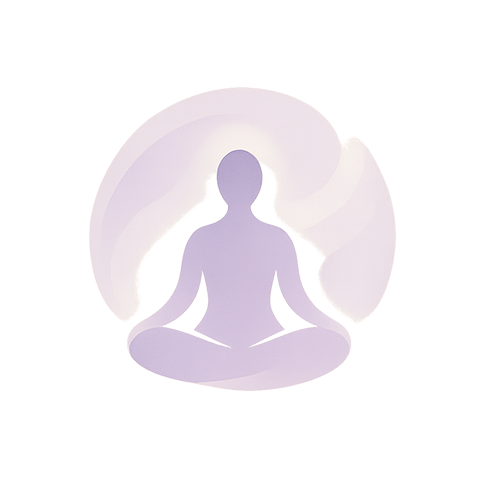In today’s fast‑paced world, the concept of maintaining mental health has become more than a buzzword; it is a lifeline. When we speak of mental well‑being, we often focus on therapy, medication, or mindfulness apps. Yet a holistic approach that weaves together the soul, spirituality, self‑education, and beauty rituals can create a resilient foundation. This article explores how these elements interact, offering practical guidance for those seeking a balanced, vibrant life.
The Soul as a Compass
The soul is often described as the essence of who we are—our deepest feelings, values, and aspirations. When the soul feels aligned with daily choices, the mind naturally rests in a calmer state. Maintaining mental health therefore starts with listening to that inner voice. It requires honest self‑reflection, journaling, or quiet contemplation. A simple practice is to pause at sunset and ask, “What has touched my heart today?”
- Identify core values that guide decisions.
- Allocate time for reflection without distraction.
- Notice patterns that signal inner dissonance.
These small steps help anchor the mind, reducing anxiety that often arises from external noise.
Spirituality: Beyond Organized Religion
Spirituality is a personal experience of connection—whether it is with nature, the universe, or a higher consciousness. It offers a sense of purpose that can buffer stress. For many, spiritual practice means meditation, yoga, or a walk in a forest. The key is consistency; even a five‑minute breathing exercise each morning can set a tone of calm for the day.
“When you find a quiet space inside, the world outside feels less overwhelming.” — Anonymous
Remember that spirituality is not confined to a church or temple. It can be expressed through art, music, or helping others, each of which nurtures a sense of belonging and inner peace.
Self‑Education: Feeding the Mind
Intellectual curiosity is a powerful antidote to boredom and depression. Engaging the mind with new knowledge stimulates neuroplasticity, allowing the brain to build resilient neural pathways. Maintaining mental health is enhanced when we regularly challenge our thinking, read diverse perspectives, or learn a new skill.
- Read weekly on topics outside your usual interests.
- Enroll in online courses that excite you.
- Set aside time for creative writing or problem‑solving puzzles.
Such activities not only broaden your horizons but also foster a sense of achievement, boosting self‑esteem and overall well‑being.
Beauty and Skin Care: A Ritual for Self‑Respect
When we care for our skin, we practice self‑love, reinforcing the idea that our bodies deserve attention. A simple routine—cleanse, moisturize, protect—signals to the brain that we value ourselves. Moreover, beauty rituals create a mindful moment that can break the cycle of stress.
Choose products that suit your skin type and avoid harsh chemicals that may cause irritation. Incorporating natural ingredients, such as aloe or chamomile, can also provide calming benefits. Remember, the goal is not perfection but consistency.
Integrating Practices for Sustainable Balance
Maintaining mental health is not a series of isolated tasks but an integrated lifestyle. The challenge lies in weaving soul, spirituality, self‑education, and beauty into a daily tapestry. Below is a suggested schedule that blends these elements without overwhelming the day.
- Morning (7:00–8:00) – Begin with a brief meditation (5 minutes), followed by a nourishing breakfast and a short journaling session.
- Midday (12:30–13:00) – Take a brisk walk outside, observing nature, and practice a grounding breathing exercise.
- Afternoon (15:30–16:30) – Engage in a learning activity—read a chapter, watch a documentary, or sketch an idea.
- Evening (18:00–19:00) – Prepare a comforting dinner, then spend ten minutes on a skin care routine, feeling the textures and aromas.
- Night (21:00–21:30) – Reflect on the day’s experiences in a gratitude journal, ending with a calming stretch or gentle yoga pose.
Flexibility is key; adapt the routine to your personal rhythms and commitments.
When to Seek Professional Support
While self‑care practices are foundational, they are not a substitute for professional help when needed. Symptoms such as persistent sadness, hopelessness, or intrusive thoughts warrant consultation with a mental health provider. Early intervention can prevent escalation and facilitate a more rapid return to balance.
Professional therapy, counseling, or medication can be integrated with lifestyle practices, creating a comprehensive plan for maintaining mental health. Acknowledging the need for help is a sign of strength, not weakness.
Final Reflections
Maintaining mental health is an ongoing journey rather than a destination. It invites us to honor our inner selves, explore spirituality, feed our curiosity, and cherish our bodies through beauty rituals. By weaving these strands together, we create a resilient fabric that supports mental resilience, emotional stability, and a deeper sense of purpose.
Remember that balance is not perfection but the continual effort to align our thoughts, actions, and values. Small, consistent habits build a strong foundation, allowing us to navigate life’s challenges with grace and confidence.



